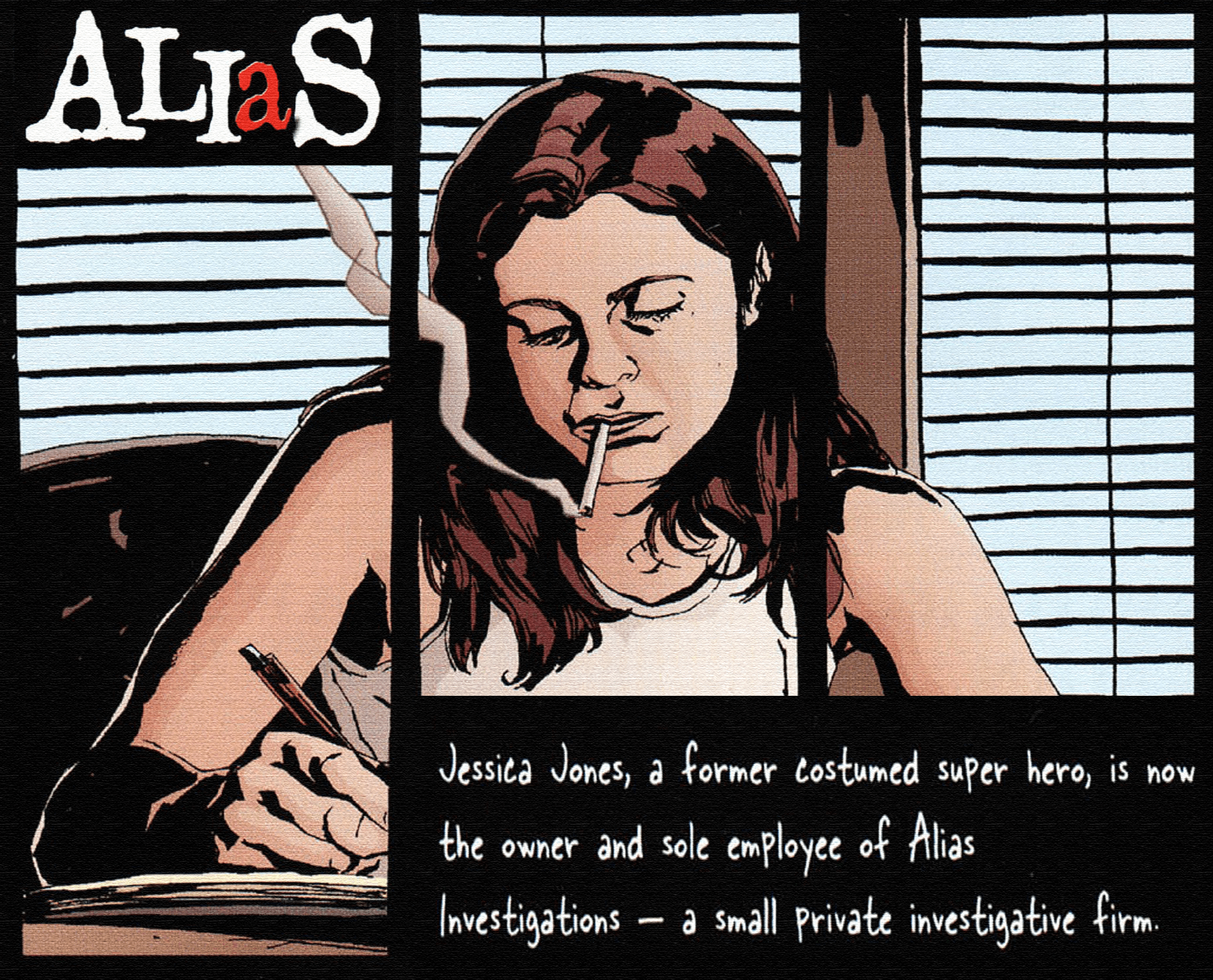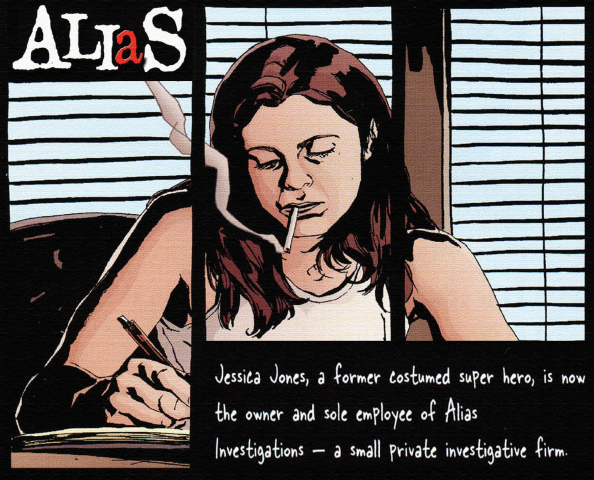Ease Up on the Guy: Brian Michael Bendis’ Contributions to Marvel

 Writer Brian Michael Bendis is a polarizing figure in the comic book community. While many of the monthly titles are well-received, Internet chatter (never read the comments!) suggests that a lot of the folks who keep tabs on the Marvel Comics mainstay either love him or hate him. He gets a lot of guff from the well-meaning and the trolls alike, often about his style of writing and wider-reaching influence on All Things Marvel. However, despite your affection or distaste for the man, most of us would be hard-pressed to argue that Bendis has made a made a long-lasting impact on Spider-Man and his fellow heroes.
Writer Brian Michael Bendis is a polarizing figure in the comic book community. While many of the monthly titles are well-received, Internet chatter (never read the comments!) suggests that a lot of the folks who keep tabs on the Marvel Comics mainstay either love him or hate him. He gets a lot of guff from the well-meaning and the trolls alike, often about his style of writing and wider-reaching influence on All Things Marvel. However, despite your affection or distaste for the man, most of us would be hard-pressed to argue that Bendis has made a made a long-lasting impact on Spider-Man and his fellow heroes.
Daredevil
Prior to Bendis taking over writing chores for the Man Without Fear, Daredevil was a book that, in all honesty, was floundering. Relaunched under the Marvel Knights imprint a few years before Bendis’ involvement, Daredevil achieved media and fan attention due to the involvement of writer/director Kevin Smith taking the story reins and superstar artist Joe Quesada handling pencils. While their run was something of a mixed bag, it did well in that it made folks take notice who had lost interest in the character.
Nevertheless, I don’t think anyone could have predicted the indelible mark that Bendis would make on lawyer Matt Murdock and his acrobatic alter ego when he stepped into the writing hot-seat. Many other storytellers had spun yarns about the Man Without Fear, with standouts among them like Frank Miller and Ann Nocenti, penning tales that pushed Matt’s balancing act of managing his superheroics and personal life to the limit. However, Bendis pushed Matt to the limits of his sanity, having his identity revealed to the public and dealing with the fallout that outing of his double life left behind. What is beautiful about the stories that followed was that Bendis didn’t shy away from the genie he had let out of the bottle. There were no magical remedies to hide Daredevil’s identity from the public eye once again. Bendis pushed through the impulse to unring that bell and explore what would happen if Matt’s greatest secret was exposed for everyone—friends, enemies, and the general public—to exploit. Bendis stayed on Daredevil from 2001 to 2006, but much of the groundwork he laid still reverberates through the character’s stories to this day.
Alias
Jessica Jones is one of the most well-rounded superhero creations of the 21st century, created out of whole cloth by Bendis in 2001, the same year he began his work on Daredevil. Starring in the comic book series Alias (no, not that one), Bendis follows the tale of Jessica, a former superhero-turned private detective who navigates the other side of the tracks of the Marvel Universe, the warped mirror of our four-colored heroes. As Jessica takes on each new case, usually with some connection to a Marvel hero or two, we learn more about Jessica herself, her childhood, and what drove her out of the superhero game. By the end of the series, we see whether or not Jessica is able to come to terms with her past and face tomorrow. Bendis made readers fall in love with Jessica in a scant twenty-six issues, creating a well-rounded character whose virtues and flaws both Bendis and Jessica herself fully embraced. So many comic book heroes and villains are written as having flaws in order to more fully flesh out their personalities, but few writers explore how those flaws shape everything from their relationships to their self-confidence in negotiating the world. For my money, Jessica Jones is the one of the top-ten most well-written characters in all of superhero comics. Hell, I wanna be Jessica when I grow up.
Ultimate Spider-Man
Back in 2000, then-Marvel President Bill Jemas tapped Bendis to reenvision Spider-Man and his world for a new line known as Ultimate Marvel. In Ultimate Spider-Man, Bendis threw the spotlight on a young Peter Parker navigating life as a teenager and a superhero in the modern age. With Ultimate Peter, Bendis was able to bring a fun and sense of wonder to the wall-crawler that many felt had been long absent in other series featuring the superhero. While I tend to feel that Bendis’ depiction of an adult Spidey in the “regular” Marvel Universe can sometimes come across as too uncertain despite all of his years as a hero, that sensibility fits well in the paradigm of Ultimate Spider-Man’s world. In addition, Bendis’ work on Ultimate Spider-Man led to the creation of Miles Morales, the first black/Latino Spider-Man. In Miles, Bendis has created a character fraught with many of the uncertainties that Peter had and has, while at the same time being brought to life in his own world, leading readers to believe that anything can happen with this new wall-crawler.
Uncanny X-Men
Following the events of Avengers vs. X-Men, one could completely understand if any writer who tackled a new X-series wouldn’t know what to do with some of the X-Men. At the conclusion of the miniseries, Cyclops, the White Queen, and Magik—all mutants who used the Phoenix Force to remake the world—were on the run from the law, avoiding capture from both their former X-Men allies and the Avengers. How could a writer pen a compelling comic book where most of the series’ characters were considered outlaws? Bendis seemed to know that you don’t approach the characters as outlaws; they’re the series’ protagonists and you treat them as such. In Cyclops, Bendis pushed the mutant leader’s zeal for protecting his fellow Homo superior to the nth degree, recreating Scott Summers as more of a revolutionary than he ever was before. Bendis makes you root for Cyclops and his compatriots and even make you sympathize with their methods. Along with All-New X-Men, Uncanny X-Men is one of the best mutant books Marvel has put out in years.
Avengers
Love it or hate it, Bendis’ work on the Avengers franchise, beginning with his work on Disassembled, reinvigorated the line of books, which seemed to be flailing. Bendis swept away most of the old guard and introduced a whole new slew of Avengers, including fan-favorite characters like Spidey and Wolverine. While the big names might have gotten the butts in the seats, so to speak, the characterization between mainstays such as Captain America and rookie Avengers like Wolverine made readers stick around. Under Bendis’ guidance, C-list characters like Luke Cage and Iron Fist—both of whom guest-starred in the writer’s work on Daredevil—were given a chance to shine. While older fans and even the newer ones might bristle at the hand Bendis has had in shaping the Avengers’ world, I don’t think anyone can deny that his touch on the assembling heroes will be felt for years to come. For the good and the bad—and I think the good outweighs the bad—I’m okay with that.
Jed W. Harris-Keith is a pop culture junkie but insists that he can stop whenever he wants. His spirit animals are Jim Halpert from The Office and Jeff Winger from Community. He usually stays busy making squiggles into words over at FreakSugar and by working as an educational writer. You can also catch him on the Twitter @jwkeith80 and on Tumblr at therunningdude.tumblr.com. Are you following The Mary Sue on Twitter, Facebook, Tumblr, Pinterest, & Google +?
Have a tip we should know? [email protected]